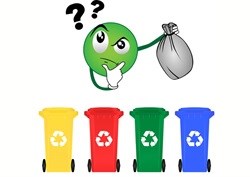






In addressing these challenges, he said government would make three macro interventions on spatial reconfiguration, township economy revitalisation and massive infrastructure investments. As such the need for business and government to come up with workable solutions for South Africa's socio-economic challenges has increased significantly.
It is clear that our government, through the National Development Plan (NDP), is working to boost economic growth and create much needed jobs.
Following the State of the Province Address it is clear that we need all stakeholder involvement to fast tracking our efforts to create jobs and drive economic growth, and this can be achieved by thinking out of the box.
One of the ways we can fast track this process is by creating circular economies. A circular economy is an alternative to a traditional linear economy in which we keep resources in use for as long as possible.
For example, in the tyre industry, it means re-using, repairing, refurbishing and recycling existing materials and products. In other words, what used to be regarded as 'waste' can be turned into a resource and reintroduced into the economy.
By involving all stakeholders, government and private sector, the REDISA tyre industry circular economy model is working: tyre manufacturers and importers are taking responsibility for their waste without losing sight of focusing on their core business; unemployed people are finding gainful employment; SMMEs are being developed and supported by the REDISA Plan, and the environmental disaster that waste tyres represent is being economically and effectively addressed.
Without legislation by the Department of Environmental Affairs implementing the REDISA Plan would never have been possible, and the success would never have happened.
While the circular economy is growing, it is happening at a slow pace. If the circular economy is to become more widespread, we must look at all industries to see how through innovation and cooperation we can double our efforts.
The results are evident. Through REDISA's collaboration with government on the one hand, and tyre manufacturers and importers on the other, we have in 18 months helped create over 1,600 new jobs and start 162 small businesses, simply by seeing used tyres differently.